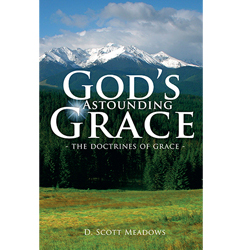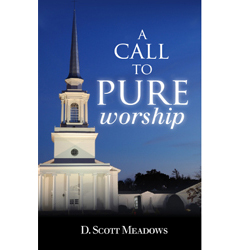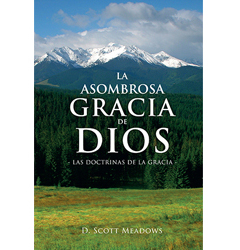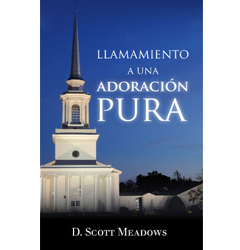

Law-Keeping Spirituality and Psalm 119
D. Scott Meadows
Holy Scripture praises and recommends what could be called law-keeping spirituality for Christians today, but the very notion faces massive opposition from the world and from many professing Christians.
The world’s hostility is not surprising, for its very posture is lawlessness before God. “The carnal mind is enmity against God: for it is not subject to the law of God, neither indeed can be” (Rom 8.7). Sin is essentially “lawlessness”—not just breaking God’s commandments and failing to keep them, but living as if there were no law at all, except the law of self will joined with self gratification. First John 3.4 characterizes sin as “anomia” (Gk.), the alpha privative prefix (“a”) compounded with the word for law (“nomos”), and very properly translated both as “transgression of the law” (AV) and as “lawlessness” (alt.; cf. BDAG, LSJ, LN, and other reputable lexicons). One lexicon helpfully explains,
The privative prefix and the content of the word νόµος [nomos] give two shades of meaning to ἀνοµία [anomia]. The reference is either a. to a fact, “there is or was no law,” “without a (the) law,” or b. the word means “against the (a) law,” with an implied judgment, since it is assumed that there is in fact a binding law. This gives ἀνοµία [anomia] the sense of “wrongdoing,” “sin.” In fact, of course, the two meanings cannot be sharply differentiated from one another in the majority of cases. The difference is merely one of emphasis (TDNT 4.1085).
Anyone disregarding divine moral law is necessarily committing many transgressions against it and failing to keep its precepts in the fear of the God whose law it is. In a word, they are “sinners.”
The antagonism of many professing Christians to law-keeping spirituality should be even more disheartening to us than the world’s wickedness. Paul warned church elders that after he left them “grievous wolves [shall] enter in among you, not sparing the flock. Also of your own selves shall men arise, speaking perverse things, to draw away disciples after them” (Acts 20.29, 30). That prophecy has come true in the first century and beyond. The “perverse things” spoken by untrustworthy teachers encompass a large variety, but one example is a defense of lawlessness in the name of grace. Jude exposed the danger to early Christians by writing, “there are certain men crept in unawares, who were before of old ordained to this condemnation, ungodly men, turning the grace of our God into lasciviousness, and denying the only Lord God, and our Lord Jesus Christ” (Jude 4). “Lasciviousness” means moral looseness or wantonness. A good alternative translation would be “licentiousness” which denotes being immoral, especially in sexual behavior. False teachers turn grace into a license to sin, that is, to live in wanton disregard of God’s moral law. In particular, they often attack the biblical requirement of chastity in both singles and in those who are married.
Substantially, they were teaching that “because one is a Christian under grace he is free from any moral obligation.” That is antinomianism in its unmasked ugliness. Typically, it is much more subtle. It has slogans like, “Christianity is a relationship, not a list of rules.” “Christians are not bound to keep the Ten Commandments. We are under a higher law, the law of love.” One commentator on Romans 13.8, 9 (q.v.) twists Paul’s teaching this way:
Love must still remain the root and spring of all your actions; no other law is needed besides. . . . Notice carefully that it is love, and not law-doing which is the fulness of the law! . . . Love, and not righteousness, is the active principle of Christianity. . . . The believer . . . is to walk by that infinitely higher “rule of life,” and not by the Law (William R. Newell, “Romans Verse-by-Verse,” in loc.).
This terribly undermines the moral law as a rule of life for believers under grace, known as the “third use of the law,” a historic emphasis of Reformed theology on solid biblical grounds. The moral law summarized in the Ten Commandments is still useful to teach us how to love God and our neighbor, and to exhort us toward true righteousness. A good commentary on the same passage explains it this way.
Here love is urged, on the ground that it is fulfillment of the law in all its precepts. The whole law is grounded on love to God and love to man. This cannot be violated without the breach of law; and if there is love, it will influence to the observance of all God’s commandments. If there were perfect love, there would be a perfect observance of the law. . . . Love, then, is the fulfillment of the law, being the thing which it demands, and all that it demands in respect to both God and man (Robert Haldane, “Exposition of the Epistle to the Romans,” in loc.).
It is true we cannot be justified in God’s sight by our obedience to His commandments, and that the righteousness of the law could never be fulfilled in us apart from Christ and the gospel. But God sent His Son “in the likeness of sinful flesh, and for sin, . . . that the righteousness of the law might be fulfilled in us, who walk not after the flesh, but after the Spirit” (Rom 8.3, 4, emphasis mine). By the grace of God, true Christians enter and make progress in a law-keeping spirituality. Christ “gave himself for us, that he might redeem us from all iniquity [anomia, lawlessness], and purify unto himself a peculiar people, zealous of good works” (Titus 2.14), works which are nothing less and nothing else than what the written, verbal moral law of God required of us all along.
The entirety of Psalm 119 is practically an ode to law-keeping spirituality. Loving God and keeping His commandments are two sides of one coin. “Blessed are they that keep his testimonies, and that seek him with the whole heart” (v. 2). “O that my ways were directed to keep thy statutes!” (v. 5). “With my whole heart have I sought thee: O let me not wander from thy commandments” (v. 10). “I will run the way of thy commandments, when thou shalt enlarge my heart” (v. 32). “Let my heart be sound in thy statutes; that I be not ashamed” (v. 80). These and many other verses in the Psalm illustrate the linkage of true spirituality and obedience to God’s moral law. It is dangerously perverse, not to mention popular today, to pit them against one another in the name of grace. Let the sheep be warned about the grievous wolves who say such things, and let pastors everywhere, by faithful teachings and fearless warnings, protect the sheep of their charge from this deadly threat. Amen. Ω
All Rights Reserved. Used with permission. No part of this article may be used or reproduced in any manner whatsoever or translated without written permission.
The following books by D. Scott Meadows are available at Trinity Book Service and Cristianismo Histórico:
Ebook: A Call to Pure Worship | D. Scott Meadows
Ebook: God’s Astounding Grace | D. Scott Meadows




